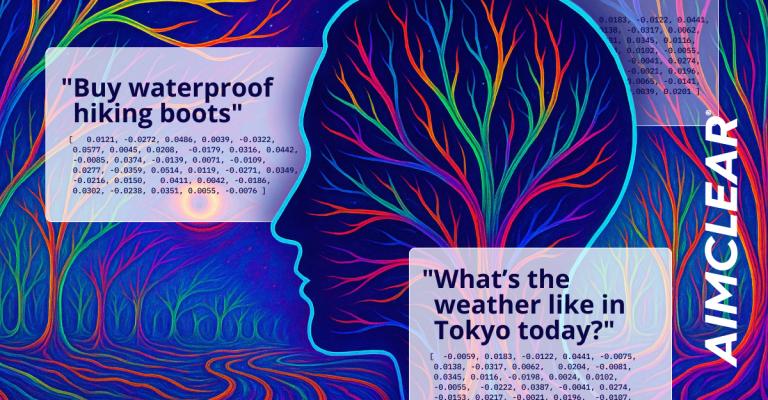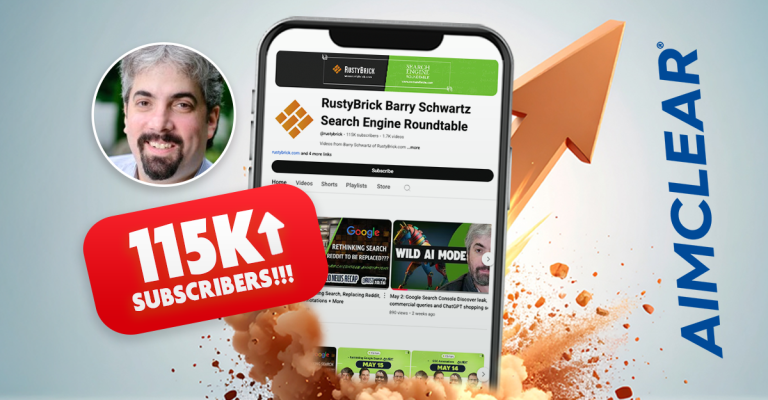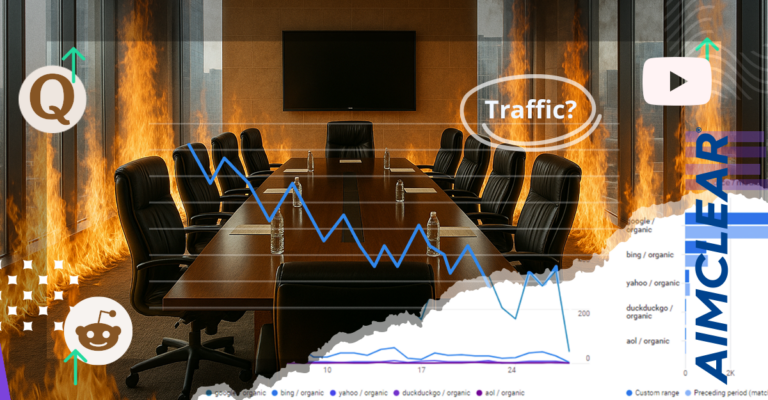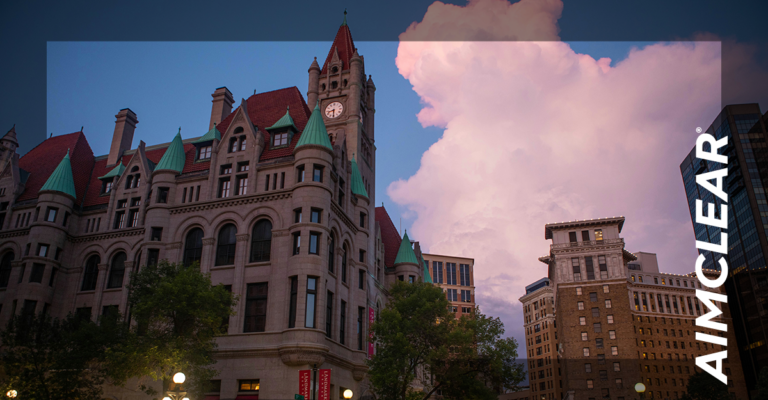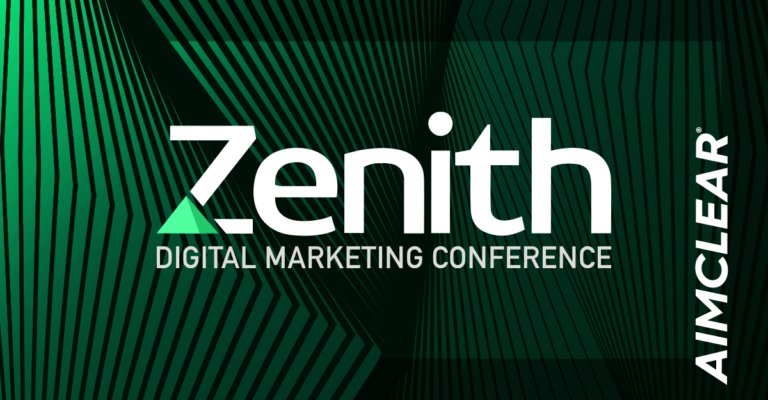From Sydney to Adelaide, Amsterdam, London, Paris, San Francisco and Portland, leading marketers convene at top digital/SEM/SEO conferences over the year. Among the world’s innovative marketers, AIMCLEAR founder Marty Weintraub regularly shares important truths with savvy audiences through his intense keynotes on mission-critical digital marketing topics.
Of course, such a tour includes great food, amazing networking, wicked jet lag and new friendships. But Marty’s recent world tour has provided him a true insider’s view on hot marketing topics. With an ear to the ground, Marty senses nuances and trends, often before others catch the slightest hint of a something new.
Between keynotes, client meetings and solidifying new client engagements, we caught up with AIMCLEAR‘s energetic founder to get his perspective on the marketing industry midway through 2017. After extensive travel and meeting countless smart marketers, even a guy like Marty learns a thing or two.
The result is an extraordinary Q&A offering Marty’s unique insight for marketers seeking relevance in an oft-changing industry.
AIMCLEAR (AC): Marty, you’ve been on a whirlwind world tour over the last several months, hitting the top marketing conferences and keynoting alongside other great minds in the industry. At a high level, what are the big concerns for marketers and your peers around the world?
Marty Weintraub (MW): There are many recurring themes, but chief among them is a burning question – “What the hell is search marketing today?” The nature of search changes hourly and marketers struggle to ID content that will get them to the top of 2017 SERPs. They’re worried about increasing CPCs and how to efficiently tap search marketing to achieve one-touch sales, and many are still wrapping their heads around segmented retargeting.
In addition, marketers worry about their jobs and their future in the system, which is a valid concern. I hear statements such as, “What’s my place in the machine?” and “What will marketers become with so much changing so rapidly?” on a regular basis.
Other recurring themes manifest through very tactical questions, such as “How can I make individual channels like Google, Facebook or LinkedIn more efficient?” or “How do the channels work together and what does integration really look like?” or “How do I market product X directly to my target audience?”. Many marketers are still plagued with answering the basic questions. No disrespect intended. With more ways to market, we see more confusion in the industry, which encapsulates the concerns I’m hearing around the world.
AC: As you travel to conferences around the world, are marketers getting meaningful answers to their looming questions?
MW: Yes and no. The business of marketing has a way of running over marketers like a steamroller if marketers fail to pay attention. Those who don’t understand the nuances will likely be out in the cold. Sadly, the answers for some of our brothers and sisters in marketing will be pink slips, because long-term roles for them are vanishing. One-trick-channel-pony marketers who only handle a very narrow space, especially in the paid marketing world, won’t see jobs in the industry much longer. Falling behind has a way of making marketers lose relevance, which can affect new and experienced marketers alike.
Marketers singularly rooted in one aspect or task will ultimately weed themselves from the marketplace. Great opportunities exist for marketers who grasp concepts like the notion of filtered, segmented retargeting. The same holds true for SEO and content. Marketers who stay out front will maintain relevance. Those who don’t…well, the world may have a different path for them. Depending on a marketer’s focus, some answers to their quest may be keyword-centric in SEO where “keyword research” means something different – there’s an added elemental procedure of psychographic research. So, there are answers, but as with all industries, those who are competent learn as much as they care to ferret things out.
Personally, I’m blessed with judging the UK Search Awards, because I pour over stunning awards submissions from brilliant marketers. I’m constantly exposed to groundbreaking case studies out of Europe – by the hundreds. It’s easier for me, and as a result for our company, to understand everyone’s goal and what the answers are. When all the discussion is done, the best way to understand answers to the profound questions of the day in any industry is to dissect programs that rocked the world.
We’re not talking about a modern-day issue, by the way. For any industry in any time, based on any technology from the old printing press to today’s big data digital marketing channels, the answer hasn’t changed much: Work as hard as you can and get as many opinions as possible from problem solvers. Attend conferences that feature leading thinkers in the industry, and then try it. Then test test test. The harder someone is willing to work and the amount of elbow grease they are willing to put in, the greater the opportunity for success.
AC: In your ten years guiding AIMCLEAR‘s growth, how have the questions confronting marketers today manifested themselves for you professionally – and how have you dealt with them?
MW: There have been many times at AIMCLEAR, even over the last five years, when I was personally confounded by a radical development or new technology. So I would take road trips to dozens of companies in a particular space to ask questions and explore how they attacked challenges. I would do this, in part, to find new ways to market AIMCLEAR.
In the end, I gained a profound education in practical ways to implement new technology and hot marketing concepts. Getting insightful answers requires personal commitment. A marketer needs to explore and gain input from brilliant minds where they work and across the industry. The answers to a marketer’s questions could be transformative, depending on the individual, the organization and how hard a marketer wants to better his or her expertise.
AC: In today’s dynamic marketing environment, it seems there is a thin line between cutting edge and obsolete. Do most marketers risk obsolescence? Or are most people somewhere in the middle and still have great opportunity?
MW: The obsolescence scale is fascinating. A marketer can be incredibly relevant this afternoon, working in a channel and churning out amazing work. They’re killing it and selling tons of shit. Their percentages are amazing. They are highly in demand at agencies and corporations. Someone can be functioning at that high level this afternoon, and literally in about 30 days they could find themselves saying, “oh my god, I’m so dumb with this.”
There are many people in the middle and those already borderline obsolete who I meet regularly on the conference circuit. I met a gentleman at a recent overseas conference and his big thing was “helping companies discover digital marketing.” He was proudly proclaiming everything has changed because everything is “all about digital.” My thought at that moment was, “Seriously? Seriously? Innovators talked that way a decade ago.” He may have felt cutting edge, but this gentleman was sadly late to the game thinking his approach was somehow new.
Fending off obsolescence comes down to personal and professional commitment. Interesting, though, someone can sit on the sidelines for months or years then mystically get completely stoked about something new. They dig into it, do the work, get motivated and inspired, and suddenly find themselves leading that space and revolutionizing marketing. I’ve experienced specific instances in marketing where things just clicked and we vaulted ahead of the curve. The challenge is always seeing the next big thing, learning, innovating and staying in the lead.
Conversely, a marketer can be incredibly relevant and lose their edge almost overnight because of some unforeseen change or innovation by Google, Facebook, LinkedIn or YouTube. An innovation can come out of nowhere and render a great marketer obsolete in short order.
AC: It’s clear that remaining relevant requires a 110 percent focus. The big conferences around the world are certainly helpful, but what else can marketers do to avoid being relegated to marketing oblivion?
MW: No matter who you are, it can seem impossible to avoid becoming a statistic. I’ve found myself close to burned out a few times, especially with my intense travel schedule, but there are simple things individuals can do daily to keep relevant.
A good place to start is the daily “SearchCap” email from Search Engine Land and Marketing Land. The editorial teams keep SearchCap concise and simple with links to top news stories along with key news from Google Blog, SEMrush, AIMCLEAR Blog and many other top outlets for news and trends. Scanning SearchCap links takes a few minutes each day. In a short time, marketers can peg which sites are most relevant for them. They’ll also circulate key news and materials within their internal and external teams. Marketers who invest 5-10 minutes each day can start to see a big boost in their knowledge in a matter of days or weeks. Cool thing is, it can be done over tea and crumpets, on a treadmill or whatever your morning routine allows.
A good next step is to encourage the same across the organization by specialty. For example, have SEO specialists stay on top of the latest trends in SEO and circulate relevant content across functions. Make the entire team brilliant. Never try to hoard knowledge.
This question about staying relevant while not burning out is important. If someone has narcissistic tendencies at all, it’s important to check all egos at the door. In reality, the person who thinks they are the smartest in the room may not know jack shit. As the Dalai Lama once said, “To conquer oneself is a greater victory than to conquer thousands in a battle.”

AC: What about specific conferences and specific speakers to follow?
MW: The list is long, and I’m bound to leave off a few greats. As a starting point, key conferences in America include Pubcon, SMX Advanced, Engage in Portland, Bend WebCAM, Affiliate Summit, Napa Summit, Key West Summit, MozCon, Adtech, State of Search in Dallas and UnGagged Las Vegas. In our backyard, I would include MnSearch Summit in the Twin Cities and Zenith Conference in Duluth.
Outside of the U.S., marketers can boost their skills at SMX Munich, UnGagged London, Friends of Search in Amsterdam, Search Marketing Summit Australia, Big Digital Adelaide and many others.
As for the top speakers to follow through conferences and social media, the list is huge. American A-listers include Brad Geddes, Brent Csutoras, Bryan and Jeffrey Eisenberg, Cindy Krum, Tim Ash, Joe Sinkwitz, Will Scott, Todd Mintz, Keith Posehn, Joanna Lord, Michael King, Dennis Goedegebuure, Matt Siltala, Michelle Robbins, Frederick Vallaeys, Andrew Shotland, Rand Fishkin, Lisa Buyer, Kristopher B. Jones, Duane Forrester, William Sears, Carolyn Shelby, Tim Mayer, Jim Boykin, Christi Olson, Danny Sullivan, and Brett Tabke – just to name a handful.
Internationally I suggest readers follow Joost de Valk (Yoast SEO), Dawn Anderson, Dave Naylor, Bas van den Beld, Aleyda Solis, Kevin Gibbons, Marcus Tober, Dan Petrovic, Lisa Myers, Derek Devlin and Marcus Tandler. IMHO, these are among the sharpest marketers on earth.
I’m so pleased to say AIMCLEAR‘s stable of speakers has expanded significantly in recent years to include CMO Manny Rivas, Merry Morud, Megan Taggart, Meghan Kimber, Dan Morrison, Chris Davis and Mitch Larson.
There are many other inspiring thought leaders on all fronts. Individual marketers need to spend time researching the smartest and most interesting people for their needs. I recommend casting a wide net for a wide range of opinions. Avoid becoming a groupie for just one thought leader, though, because nobody has a monopoly on brilliance.
AC: Let’s go back to the original premise of this conversation – professional takeaways from your recent global tour of key digital marketing events. Being out front means seeing the next big thing before others do. How can marketers spot that big opportunity on the horizon?
MW: I equate the role of marketing visionary to being a sentry on post during the colonial era at historic places like Fort Snelling just outside of Saint Paul, Minnesota. Guards kept vigilant watch, constantly scanning the horizon for threats and opportunities. The same holds true for marketers today. No matter how swamped they are with pressing client work, smart marketers keep a constant watch on the horizon, searching for a threat or new channels, tools and concepts to fill the funnel and drive conversions. In ten years at AIMCLEAR, we’ve brought many notions from being a speck on the horizon to game-changing digital marketing trend.
Here’s a really cool hack people can do with something as basic as Google Alerts or other listening tool. Listen beyond brand- or product-specific terms and incorporate exact phrases or keywords ABOUT brands and competitive brands.
Set up alerts for keywords around important verticals. In marketing, terms could be “filtered retargeting,” “psychographics display,” “social PPC” or other terms specifically tied to categories and subcategories about products or services. Nuanced broad searches will flip the notion of listening only for brand terms to listening about important keywords. In other words, set up a reputation monitoring apparatus for double duty. Instead of simply doing the research every day about what is happening, get alerted more broadly about anyone writing about the key issues or topics percolating in the researchable content universe.
As you gather insight and connect dots, the hidden opportunity on the horizon will become visible much faster. Smart marketers can get a head start on the next big thing, which is always a short distance away.
AC: You’ve spoken in detail about professional observations from your recent globetrotting conference schedule. What about personally? Have any of your recent experiences with different cultures and different people been personally transformative?
MW: Much of it has been transformative,
I tell the following story a lot. Recently I was in the Paris Gare du Nord train station, heading to Amsterdam for a weekend of writing at the Van Gogh museum. There I met a woman, perhaps 60 years old, tending a coffee stand. She had an amazing espresso machine. I approached her and said, “Your machine is so beautiful.” She responded a little tersely, “My machine is so beautiful? What about me? I’m a woman and you tell me a machine is beautiful?”

The exchange with this wonderful human being made me realize in America, we sometimes shy away from being genuine and honest about beauty, for fear it may be taken wrong. The woman’s tone warmed up and she declared, “You’re in Europe now. It’s okay to speak that way.”
Wow! The interaction with an amazing stranger showed me we have an opportunity to adapt our thinking and culture to allow a respectful way of letting others know we find real treasure in them, regardless of gender or other attribute. If I’m able to share what I see as beautiful in others, maybe I can find permission to discover more of the good qualities within myself.
I love traveling to Europe because I discover self-compassion and a greater ease with who I am in a place where the norms are a lot different. It’s perhaps more relaxed and more creative with thousands of years of history instead of hundreds. The most profound things I see throughout the world is how various cultures handle self-esteem and mental health. It’s clear to me that my heart is part European.
One other transformative experience from recent world travels happened recently in London. While presenting at UnGagged, a horrific raging fire gutted a high-rise building, cutting short dozens of precious lives. Not long before, someone drove across a bridge and plowed into a crowd of people, destroying more lives. Instances of hate have become too common in the UK, Brussels, France and other locations that have seen terror recently.
While I travel, my mom keeps tabs on me via social media. She worries. Ironically, I feel safe and so personally close to a wide range of people when traveling to sometimes-troubled locations. I feel strangers’ hearts when around them in those environments, in places more under siege than we are in America.
Through human interactions, I believe some of the unthinkable things happening in this world today actually bring us closer. I feel connections with people where there are no artificial boundaries.
Self-compassion and meaningful connections with other humans uncover more about ourselves and our potential than the grandest of professional conferences. I thrive on all lessons learned – personal and professional.







